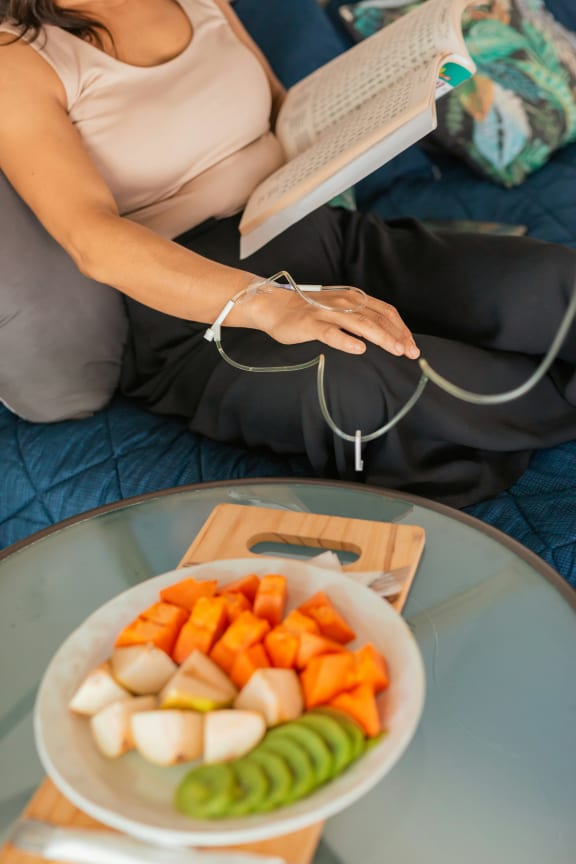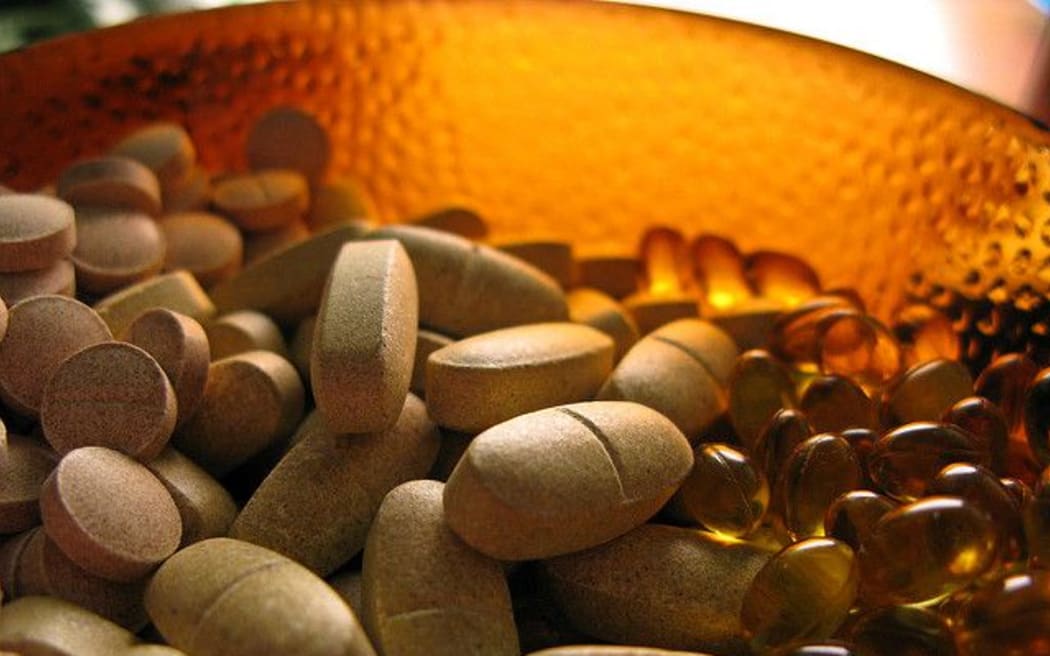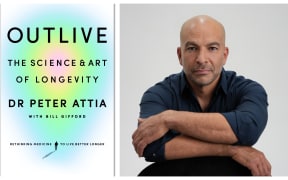By Niki Bezzant*

Should you make like a wellness influencer and get an intravenous vitamin drip? Photo: Jordan Gonzalez / Unsplash
Not content with getting their vitamins the old-fashioned way, celebrities and wellness influencers are turning to intravenous vitamin drips to boost their health. Gwyneth Paltrow is famously a fan, and they're becoming popular in New Zealand as well. Wellness influencer Art Green recently appeared in a promotional post on Instagram that showed him hooked up to a drip while relaxing outside on his deck. "Something I've wanted to try for a while to top up vitamin levels to help my immune system, decrease inflammation and increase antioxidants," he told followers.
The company supplying Green's at-home IV drip charges upwards of $280 for cocktails of vitamins, minerals and other supplements, infused directly into a vein. Claims made on the 'menu' of drip offerings include boosted immunity, better skin health, increased energy levels, DNA repair, cleansing and detoxifying the liver, anti-ageing, longevity and more.
Elsewhere, vitamin infusions are offered by skin and aesthetic clinics which also provide botox and fillers. It's claimed the IV drips can "increase energy levels, enhance digestion and support general health and wellness".
What's in the drips?
The substances in vitamin IV drips vary, from large doses of vitamins C and B complex through to substances like NAD or nicotinamide adenine dinucleotide: an antioxidant beloved of wellness-seeking biohackers. There's also Myers' cocktail, a combination of vitamin C, magnesium, B complex and other ingredients, promoted for everything from pain reduction to better digestion to hangover cure.

Gwyneth Paltrow is among celebrity fans of intravenous vitamin drips. Photo: ROBYN BECK
Do they work?
There are reasons health practitioners might prescribe and administer IV drips of vitamins. Dietician Anna Richards, who specialises in treating people with allergy and intolerance, says vitamin infusions are used for people with inflammatory bowel disease. In that case, she says, "there's been so much damage to the gut, absorption's better with an IV". Other good reasons a drip might be used are during cancer treatment; as part of end-of-life care or with an acute or recurrent viral or bacterial illness.

An IV vitamin drip might not solve all your health issues. Photo: Jordan Gonzalez / Unsplash
Despite some promoters claiming vitamin IV drips, including Myers' cocktail, are "well studied", there have been very few published studies on these treatments. A 2009 study of 34 people with fibromyalgia found some people experienced some pain relief from a series of Myers' cocktail drips. However, the placebo group also experienced improvements, and the researchers concluded there were "no statistically significant differences" between the two groups. The efficacy of the cocktail for fibromyalgia, they said, "is as yet uncertain".
There appears to have been little research on IV drips for otherwise healthy people. An article published in the Drug and Therapeutics Bulletin in 2023 noted: "There is a lack of high-quality evidence to suggest that high-dose vitamin infusions are necessary or offer any health benefit in the absence of a specific vitamin deficiency or medical condition."
Richards agrees. "Unless you've actually done the testing and proven that there's a deficiency - you're not going to receive any extra benefit from taking more."
The researchers note there could also be harms from taking high quantities of some vitamins and minerals.
"I would be really concerned," Richards says.
"B and C vitamins are water soluble, so you're going to pee them out anyway. But minerals and [vitamins] A, D, E and K are all fat soluble. So it is possible to get toxicity."
There's also the possibility of serious side effects in people with kidney issues, heart disease or high blood pressure, and high doses of some B vitamins and magnesium can cause serious and sometimes long-term problems.
Richards uses the analogy of making a cake: "That one teaspoon of baking powder's really good, so let's put in 10 and we'll make a better cake! And in fact, that cake will be a complete disaster.
"With vitamins in particular, the body's a trillion chemical reactions, and vitamins are the catalyst for a lot of those. And you need the right balance of all the reagents. Adding more of one of them isn't going to make it work any better."
As far as making us look better, there's no proof of anything there, either. Dermatologist Sonya Havill says "IV vitamins currently have no conclusive evidence of benefit in skin treatment".

Too many vitamins and minerals is not a recipe for good health. Photo: (Flickr User Bradley Stemke CC BY 2.0)
Why might you feel better, then?
If you've got a deficiency - again, something which should be properly tested for and diagnosed - a vitamin infusion might make you feel better. Likewise, if you're dehydrated, the hydration you receive from an IV infusion will help you feel revived. Other reasons could include a placebo response, as noted in the fibromyalgia study. Lots of elements play into this, including expectation; there's research to show expensive treatments, administered by caring, attentive practitioners tend to make us feel better, even when they're inactive substances.
Can you get the effects other ways?
As with most aspects of our health, the experts say there are no shortcuts. Eating a varied diet including lots of plant foods; getting enough sleep; minimising stress; moving regularly and consuming less alcohol are all things we need to do for our overall health. Supplements - in any form - are just that: supplemental to healthy habits.
"Supplements of any description are only of benefit if there was a problem in the first place," Richards says.
"If we are not deficient, they won't make us run any better."
* Niki Bezzant is a writer, speaker, journalist and author focusing on health, well-being and science.






